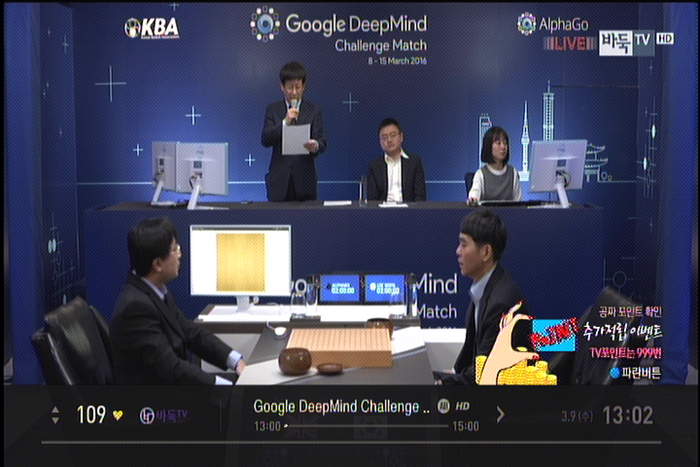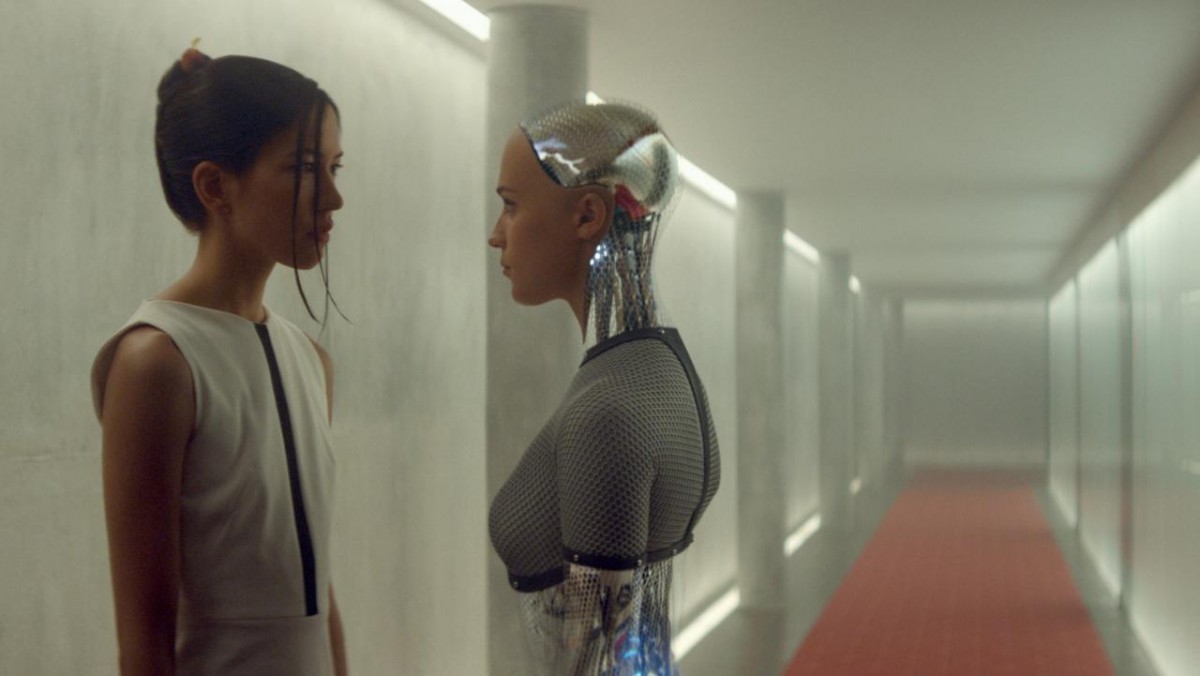Memo #368
By: Hyung Gu Lynn – hlynn [at] mail.ubc.ca

If humans lose against artificial intelligence (AI) in a complex two-player game, is this a cause for hope or worry? The answer is – both.
Currently battling in Seoul, South Korea, Google DeepMind’s AlphaGo, the powerful AI, is up 2-0 against Lee Sedol, the most decorated and dominant professional Go player of the past decade, and current world no. 4. The remaining three games are to be played to March 15. Given that the top Go professionals, including Lee himself, had expressed confidence in an overwhelming victory for humans, the shock in Go circles (as well as the tactful elation from DeepMind’s co-founder, Demis Hassabis), has been palpable. Lee described himself as “nearly speechless” after his 2nd defeat. Japan’s top player, Iyama Yūta, world no. 3 (2 wins, 4 losses vs. Lee), called the results so far “frightening.” China’s Ke Jie, world no. 1 (8 wins, 2 losses vs. Lee), who had predicted a 5-0 or 4-1 human victory, has qualified his view, giving himself a 60-70% chance for victory should he battle AlphaGo.
Why hope? The exposure for Go is priceless. The game boasts a 3000-year history and is exponentially more complex than chess (there are more possible moves than the number of atoms in the universe). A professional international league was established in 1989, featuring top players from China, South Korea, and Japan. There are dedicated TV channels in South Korea, and regular programs covering Go in China, Japan, and Taiwan. But Go has not attained mass popularity outside of East Asia. These matches will expand global awareness, and possibly revive interest in Japan, where the Go-playing population has steadily decreased since a popular manga, Hikaru no Go, centered on the game ended its run in 2003. For Korea, where popularity had already been boosted by recent pop cultural invocations of the game (e.g. the webtoon and TV drama, Misaeng), this is fuel for further growth.
Why worry? Unlike for chess, most experts thought that an AI that could defeat a top Go professional was likely a decade away due to the greater complexity required. AlphaGo’s victories demonstrate that AIs have superseded humans, at least for specific complex tasks. From robot replacement of labour to AIs rendering human intelligence obsolete – worrying trends indeed. But if human academics can be replaced by more efficient, precise, conscientious and innovative AIs in the not-too-distant future, perhaps this worry should also be embraced as hope.
About the Author:
Hyung-Gu Lynn is the AECL/KEPCO Chair in Korean Research at the Institute of Asian Research and the Department of Asian Studies, University of British Columbia, where he also serves as Editor of the journal Pacific Affairs as well as the Asia Pacific Memo.

Google DeepMind Challenge Match (Credit: Baduk TV)

Scene from the 2015 film Ex-machina, directed by Alex Garland (Credit: A24 Films and Universal Pictures)
Links
- Google Official Blog: Insights from Googlers into our products, technology, and the Google culture.
- David Silver, et al., “Mastering the game of Go with deep neural networks and tree search,” Nature, 529, no. 7587 (2016): 484-489.
- Go Ratings (rating of Go players provided by go4go.net).
- Marc L. Moskowitz, Go Nation: Chinese Masculinities and the Game of Weiqi in China (Berkeley: University of California Press, 2013).
- “Jie Ke: Computer invincible? I’d probably give myself 60-70% chances of winning” Sina.com, March 10, 2016. (Chinese)「柯洁:电脑无敌?先过我这关 我胜算大概六七成」『新浪网』March 10, 2016.
- Nam, Chihyung, “The Beginning of International Professional Go Tournament and the Changes in East-Asian Go Scene,” Society and History, 104 (2014): 261-296. (Korean) 남치형「국제프로기전의 창설과 동아시아 바둑계의 지형 변화」『사회와역사』104 (2014): 261-296.
- Kim Young-Sun, Kim Maria, “A Study on Making Cultural Brands for the Globalization of Korean ‘Baduk’,” Cultural Industries Research, 10, no. 1 (2010): 125-146. (Korean)김영순, 김미라「한국바둑의 세계화를 위한 문화브랜드화 조사연구」『문화산업 연구』10, no. 1 (2010): 125-146.
- “AI on winning streak vs. Korean Pro: Iyama Yūta – ‘Frightening Development’,” Sankei Sports, March 10, 2016. (Japanese)「人工頭脳が韓国棋士に連勝 井山碁聖 「恐ろしいこと」」『サンケイスポーツ』March 10, 2016.
Related Memos:
See our other memos on South Korea.